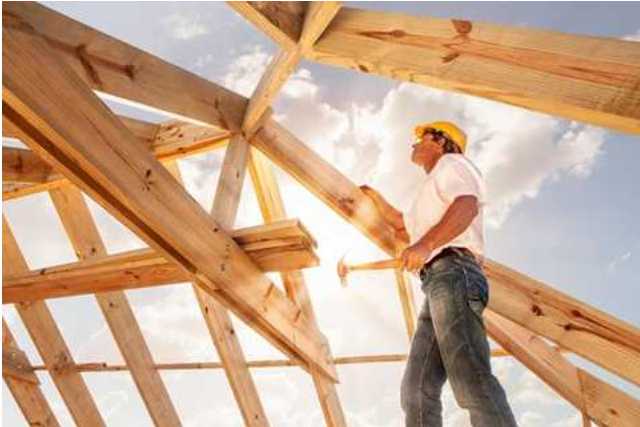
If you've never heard of a legal construction mortgage, you should know that it is something to be wary of!
In fact, it is one of the most feared and restrictive measures the law has to offer, and you'll quickly see why. Indeed, this legal tool allows contractors to guarantee the payment of their debt for work performed.
With this in mind, how do you go about enforcing a legal construction mortgage in the event of non-payment, or what should you do if a contractor applies for this mortgage against you? The law provides for a specific procedure that must be followed, otherwise, you may lose your rights to your home.
JuriGo explains how a legal mortgage works in Quebec and even offers to help you find a lawyer who can help you. Simply fill out our form to connect with reliable lawyers in your area!
What is a legal construction mortgage and what is it used for?
In the construction industry, the money invested to build, renovate, or improve properties are often considerable, whether in terms of materials or labour.
Since the law recognizes that it would be risky to let contractors pay for such amounts without any form of guarantee of payment from the client, it provides protection by way of a legal construction mortgage.
The legal mortgage is, therefore, security that results from the law. Unlike a conventional mortgage attached to a residential mortgage loan, for example, the legal construction mortgage originates from the Civil Code; the contractor and the client do not have to sign a deed of mortgage for it take effect in favor of the contractor.
The only purpose of the mortgage is to guarantee the payment of the debt of the persons participating in the construction work up to the amount of the added value they have brought to the building. This clarification is therefore not trivial, since work that does not add value is excluded from the legal mortgage.
Moreover, the mortgage is also a real right conferring a right of action, which means that it gives its beneficiaries the right to take action on the property affected by the mortgage and, in case of persistent default by the debtor, allows the seizure of the improved property. Obviously, there are prerequisites to follow but the mortgage provides for the exercise of mortgage recourse, including seizure and judicial sale, and taken as payment.
To make a claim against third parties, the mortgage must be published at the Bureau de la publicité des droits which is mandatory for the beneficiary of the mortgage who wishes to exercise this recourse.
What happens if there are several mortgages? The legal construction mortgage ranks before any other mortgage! For example, in the event of a competition between a published conventional mortgage or another security, the legal construction mortgage ranks first before any other loans. If several legal mortgages have been registered, they will compete with each other based on their value.
With this information now forming a clearer picture in your mind, you can appreciate the gravity of the consequences of a legal mortgage.
But there's more to know in order for you to use this tool properly or to protect yourself.
What work is covered by a legal mortgage?

The guarantees conferred by a legal construction mortgage do not apply to all types of renovation or construction work. In fact, the law limits the protections offered by this mortgage to work that adds value to the property. By added value, the law includes only work that contributes to the increase in the value of the building, as opposed to simple maintenance or upkeep work.
Among the works contributing to the increase in value , the Civil Code and the law recognize the following as potential beneficiaries of a legal construction mortgage!
- Construction
- Renovation
- Expansion
- Major repairs
When is the added value determined? The value is established on the day the work is completed or abandoned, regardless of any subsequent actions taken by the debtor that may negatively affect the value.
How is the increase in value of an immovable assessed? The courts have repeatedly ruled that the analysis of the increase in value requires a purely objective analysis based on economic principles; the value of the immovable before and after the work is compared to determine if an increase in value has actually resulted from the work done.
What happens if there is no increase in value? In this case, the court will be entitled to order the cancellation of the legal mortgage which will extinguish the right of the contractor who published it.
Who can benefit from a legal construction mortgage?
The protection conferred by the legal construction mortgage is broader than it appears and is not limited to the general contractor in charge of the work.
In fact, it benefits all the stakeholders and workers who were part of the construction and increasing its value, including:
- Contractor
- Subcontractor
- Material suppliers
- Workers
- Architects
- Engineers
There are some exceptions and limitations! In particular, each of the contractors and professionals mentioned above must be duly registered with their association or hold the necessary permits in order to benefit from a legal mortgage. As for the supplier of materials, his right to this mortgage will only be realized if the materials are used for the construction and incorporated into the building.
A distinction must also be made for contractors who do not contract directly with the owner! As mentioned, the legal mortgage benefits the contractor even if there is no direct contractual link between him and the owner.
For example, in order for a subcontractor to exercise his mortgage right, he must have denounced his contract to the owner. This is to allow the owner to make the necessary deductions and to know from whom to obtain a release before paying the contractor.
This denunciation must be in writing and sent before the beginning of the work and before the supply of materials in the case of a mortgage granted in favour of a supplier.
The steps to enforce a legal mortgage

The landlord is in default and the time has finally come to take action against him by virtue of a legal mortgage. Before this can be enforced, there are several steps to follow in order to respect the formalities of the law.
Here are the steps that a lawyer will help you take to enforce your mortgage recourse and obtain payment for the work done!
1. Denunciation of the contract
Denouncing the contract to the owner is a step that is only incumbent on contractors and workers who do not contract directly with the owner, including subcontractors. Since there is no direct contract between them, the disclosure allows the owner to become aware of the existence of the contract and to provide for deductions accordingly.
It is the responsibility of the subcontractor who terminates the contract to put the notice in writing, to ensure that the owner has received it, and to prove this in the event of an appeal.
2. Registration of the notice of conservation of the mortgage (30 days)
For the contractor who wishes to obtain a legal mortgage, he must publish the notice of mortgage within 30 days following the date of the completion of the work. The notion of completion of the work is subject to interpretation in many respects, particularly when one considers that several trades follow one another on a construction site.
However, it must be understood that the completion of the work means the completion of the work in accordance with the plans and specifications. Thus, the excavator who dug the lot to pour the foundation in "week 1" of the project will have 30 days after the completion of the house to register his notice of a legal mortgage. There is, therefore, only one completion date which is common to all contractors and sub-contractors present on the site.
3. Notice of the exercise of mortgage (60 days)
Once the notice has been published within 30 days, the contractor now has a period of 6 months from the date of completion of the work to exercise his mortgage.
Legal action must be initiated and it is important to get the services of an experienced lawyer.
In the absence of such notice within 6 months, the legal mortgage will be terminated. Only the sending of a prior notice to the owner within the above-mentioned period will allow the mortgage to continue.
4. Exercising the Mortgage Recourse
Now that the publication, notice, and registration deadlines have been met, the contractor may now exercise his mortgage recourse against the owner, provided that no legal challenge is made, of course. The contractor has the choice of several remedies provided for in the Civil Code of Quebec concerning mortgage rights, including:
- Obtaining the property as payment of the debt
- Sell the immovable in court
- Sale of the property by the creditor
- Take possession and administer the immovable
As a contractor wishing to take recourse under a legal mortgage, it is in your best interest to hire a lawyer who can guide you, thereby maximizing your chances of obtaining fair payment for work done and not paid.
JuriGo can refer you to construction lawyers who specialize in legal hypothecs. Just fill out the form at the bottom of the page!
Is it possible to cancel a construction mortgage by substitution?

The owner of a building with a legal mortgage registered also has a recourse. Indeed, article 2731 of the Civil Code of Quebec allows the owner to apply to the court following the registration of a legal mortgage to request the reduction of the hypothec, the determination of the encumbered property, or the substitution of another form of security.
The owner can protect himself from the legal mortgage with the substitution of other securities, if he is able to do so. He will have to apply in court and the latter will decide whether it is appropriate to order the substitution and have the legal mortgage cancelled.
The courts have recognized that substitution can be done if a guarantee of the same value is given. In order to meet these criteria, the substitution must continue to cover the principal, interest and costs.
In addition, a court may be justified in substituting security where the contractor is abusing its remedies. This would be the case, for example, of a beneficiary of the mortgage who institutes a recourse for taking the property as payment when his claim is for a mere $10,000.
Can the contractor and the owner come to an amicable agreement? Absolutely! The freedom of contract allows the contractor to waive the legal mortgage in favour of another guarantee. However, since the legal mortgage is one of the strongest guarantees, the chances of reaching a compromise are slim to none.
Is the waiver of the legal mortgage valid?
Substitution is a protection that the owner can use to try to cancel the legal construction mortgage but with a waiver agreement, he would not need to do so! In fact, the law allows parties to waive the legal construction mortgage in advance.
With such an agreement, the contractor renounces the rights and effects conferred by the legal construction mortgage, which has the effect of releasing the owner. However, it should be noted that the waiver of this right will not prevent the publication of such a mortgage.
In addition, the waiver of the legal construction mortgage is sometimes entered into between a contractor and its subcontractors, stripping the latter of their mortgage rights.
If you are a contractor, you should only sign such a waiver for good reasons as you lose important rights by signing such an agreement!
What should you do if you receive a notice of legal mortgage?
Are you a property owner who received a notice of registration or a legal mortgage or a notice of mortgage exercise? It's time to act quickly by contacting a lawyer right away!
A qualified legal professional will be able to analyze your situation in order to verify the validity of the mortgage claim against you.
Your lawyer will first verify whether the mandatory time limits have been respected. For example, the 30-day and 6-month time limits following the completion of the work to assert the right to the mortgage. Make sure you know the date of completion of the work to allow for this verification.
In addition, if you have paid the various contractors, send the receipts to your lawyer. With all this information in hand, your lawyer can defend you against the legal mortgage registered on your property.
Get a lawyer for your legal mortgage from JuriGo
The deadlines for enforcing a legal mortgage are short so time is of the essence! The pressure should be felt whether you are on the contractor's side or on the client's side of the mortgage because in either case, the financial consequences can be very important.
So it's in your best interest to find a qualified legal mortgage lawyer now! Fortunately for you, JuriGo can find you such a partner quickly and with the ease of a few clicks!
Just fill out the form below to Find a lawyer in your city who specializes in legal mortgages, free of charge and without obligation!